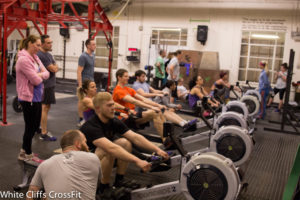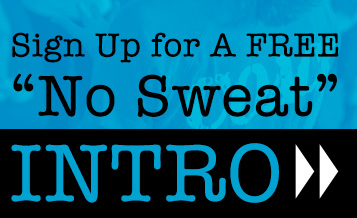
blog
Are you being over coached, are you over coaching?

- The best coaches in the world establish the deepest relationships with their athletes. It goes way beyond the conventional coaching mantra and taking every effort to understand the individual in your charge. Granted this can be harder to do when coaching individuals within groups but over time, amazing connections and understanding can be forged. Going the extra mile, for coaches at the top of the game, takes on a far different meaning and depth and goes way beyond the generally accepted format of what is taught on the majority of courses I’ve ever dissected. When coaching at the deepest levels you must take the time and effort to look outside of your sport, and even outside of sport entirely. Remember, we are trying to elicit the 1%’s of improvement in every aspect of an athlete’s repertoire and the responsibility starts with the coach’s personal acuity, flexibility and diligence. Over coaching can do more damage to an athlete than under coaching.
- Why do some coaches over coach?
- Bearing in mind it is most likely not done intentionally but a poor coach can damage an athlete’s/client’s progress by being overzealous in their instructions. Young and inexperienced coaches that are keen to impress are only lacking guidance from an experienced mentor. Coaches that lack belief in themselves or their athletes can be guilty of wanting to be liked by their clients or feel the need to control every aspect of their preparation and performance. Ego driven coaches trying that view their athletes as a vehicle for their own success whereas the non-egotistical coach is driven more by internal representations of seeing others do well and helping those on their journeys.
- All athletes/clients need to take responsibility for themselves and their learning, a coach that doesn’t let them make their own decisions in training is setting them up to fail. Consider the athlete competing and something unknown gets thrown at them, by not training the ability to think in training will render them incapable in competition. Athletes/clients must also be responsible for their own drive and performance, if the coach does all of the motivation for them then they are setting them up for disaster. A learned helplessness can develop in clients if they feel they are being corrected at every turn when in fact they are more than competent. Sometimes a coach can give too much information at the wrong time, resulting in confusion for the trainee. This could cause them to make mistakes/errors in the future. One of the major issues of over coaching in my experience is the anxiety and pressure that the client can feel as a result of it. This can be hugely detrimental to performance and progress and they may not come back again!
- Improve your coaching by not coaching.
- One of the first things I always suggest to coaches is to talk less. Human beings need time to process information and if you’re talking at the same time then confusion will arise. Give a few pointers, back off and allow for trial and error of the athlete. Remember, one of the best ways we improve is to learn from our mistakes. When something goes right, give massive genuine reinforcement. I have seen some coaches take on the role of a cheerleader! Constantly giving praise and reinforcement. This seldom gives any benefit to either party as every time they bestow praise on a client it begins to mean less and less. Quite often during a class WOD, we reach the end and a few remaining athletes are still going. When their peers gather around to give encouragement I will back off. I believe that peer encouragement can feel more genuine than a paid coach.
- Rapport is the ability to enter someone’s world and be completely at sync with them. It’s the ability to make them feel you understand them and that you have a strong common bond. It is the essence of successful communication. Rapport has been described as the ultimate tool for producing results with other people. Some coaches can place a higher degree of importance on knowledge to their cost for all the knowledge in the world is useless without the ability to connect with people at the highest levels. The coach seeking excellence should look to develop and learn the skills of rapport. Without rapport, the level of responsiveness needed to coach at the deepest and most effective levels is all but lost. People tend to like others that are like themselves. If you get 10,000 military troops from 100 different regiments on the same expanse of ground, the troops from the same regiment will naturally start to gravitate towards each other. One of the first things to establish, therefor, is a degree of commonality with the athlete. The more that you can be in common with, the better the connection. Another way to establish rapport is by mirroring/matching. Mirror the fact that you have mutual friends, interests, beliefs and all of these are communicated through words. We can also match/mirror with body language and with only 7% of actual communication is through words it makes sense to understand that tonality, speed of word and how you use your body makes up for the other 93% of what someone will actually take on board. By mirroring someone’s body language when they start a one to one coached session they will feel closer straight away, some commonality will be established. You can then use this to your advantage by leading him with your body language, words, tonality and speed. After all, we are trying to motivate our clients and if we can learn to ‘speak their language’ first and then bring them up into a productive state, then we are being one hundred times more effective. This is not being manipulative as we use this process all of the time every day. If you went for a drink with a friend, they were sitting facing you and you were sitting turned away, naturally it wouldn’t feel right, communication wouldn’t be as ‘in sync’ as it would be if you were facing them and paying attention. By learning and developing your ability to create rapport you are optimising results for your client.
- The true power of individual words
- Not just individual words, but your entire vocabulary can have the biggest impact on a athletes learning journey. Words are capable of inflicting the biggest injury, and fixing it in an instant. Some words have the power to transform our emotions or put us in an empowering state where we can absorb more information. When Winston Churchill spoke those infamous words, ‘their finest hour’ it resulted in courage beyond repair and crushed Hitler’s delusion about the invincibility of their war machine. When put into the context of coaching athletes, competent coaches should spend time increasing the quality of their vocabulary so as to have a deeper arsenal of instructive words that may resonate with the learner. The best way to do this is to be exceptionally well read. The greatest coaches are still learners and by constantly exposing ourselves to different types coaching literature from other coaches we can build a bigger vocabulary so as to enrich the learners experience.
- The main types of learner can fall in into three categories. Visual, Auditory and Kinaesthetic. Of course, we all use these senses all of the time but we tend towards a dominant one. By far the most common type of learner is visual. Visual learners tend to be very quick as they access memories or construct images in the brain, auditory leaners tend to be a bit slower as they recalling specific sounds as part of their recollection or construction. Kinaesthetic learners tend to be the slowest as they have to ‘feel’ the movement before it becomes learnt, however their learning tends to be permanent.
- Allow your athlete to breathe instead of bombarding them with pointers.
- Allow your clients to take responsibility for their own learning, progress and performance but give them all of the tools to make that possible.
- Be utterly selfless
- View coaching as a partnership
- Understand that every coach is a learner, humility goes a long way!
- Remember that the best coaches show their learners the door and don’t try to hold their hand every step of the way. They just coach enough to make the very best progress.
- Are you over coaching yourself?
- Flicking through Instagram and Facebook it’s obvious to see the huge amounts of continual videos that are being posted by athletes with a long script beneath telling the world what didn’t go right and what they need to do better. So many times, I have heard the worlds harshest critics dissect a video and see nothing but the negative. The harshest critics are, of course, ourselves. We film ourselves and look at what didn’t go right more often than what did go right. The shoulders drop, the face changes to an often-pained expression and the body language changes to an almost depressive state! Don’t forget why the majority of us to this, for fun, for love! Make sure you enjoy your process, by all means see the negative but celebrate the positive. If you see yourself through positive eyes you will be in a more resourceful state and make better progress that way. Obviously, the best thing to do with your videos is to send them to someone more experienced or a coach to give it an unbiased honest review and it’s only through that honesty that we make the best progress.
- You don’t have to be perfect, it’s a lie.








